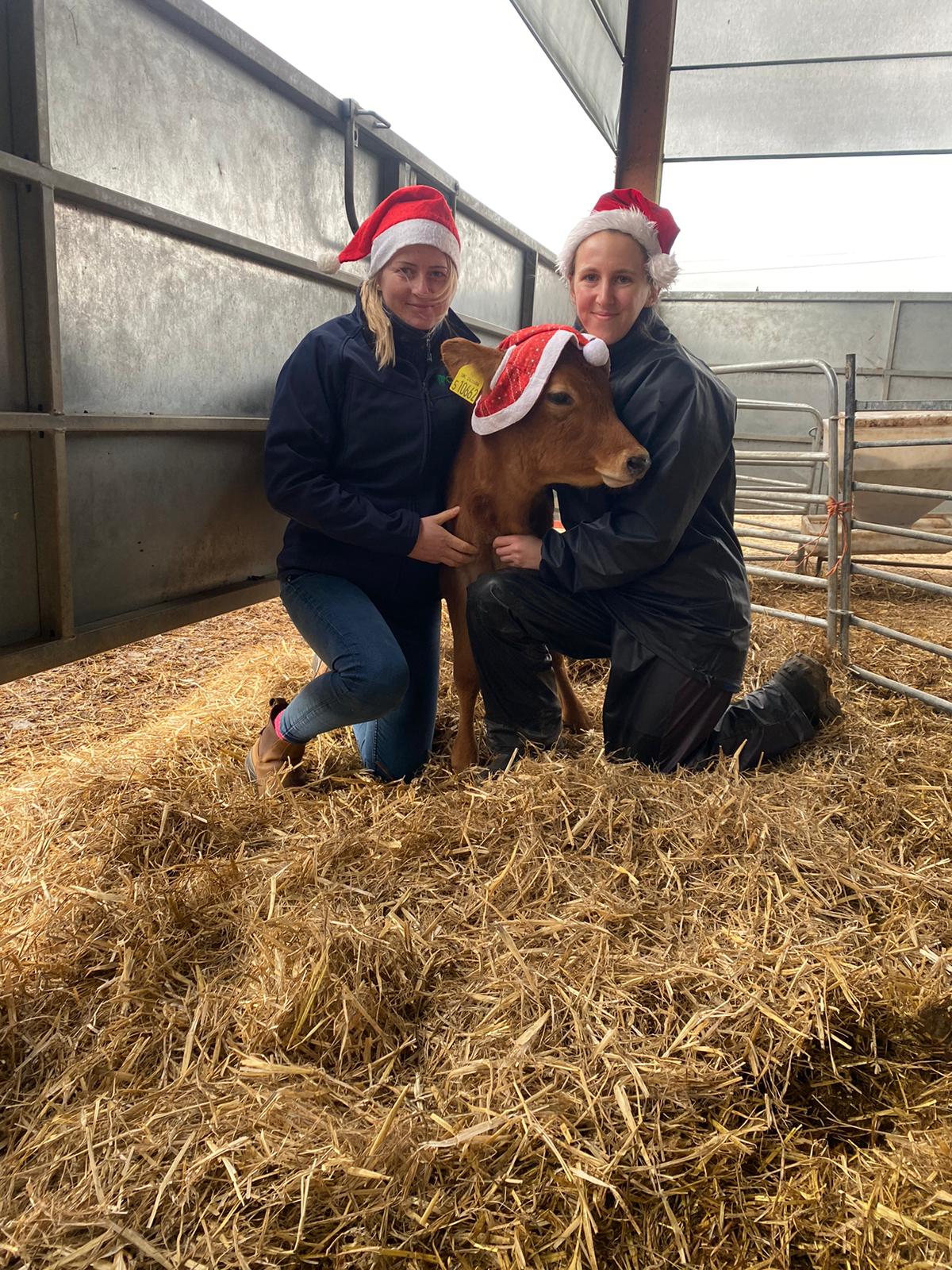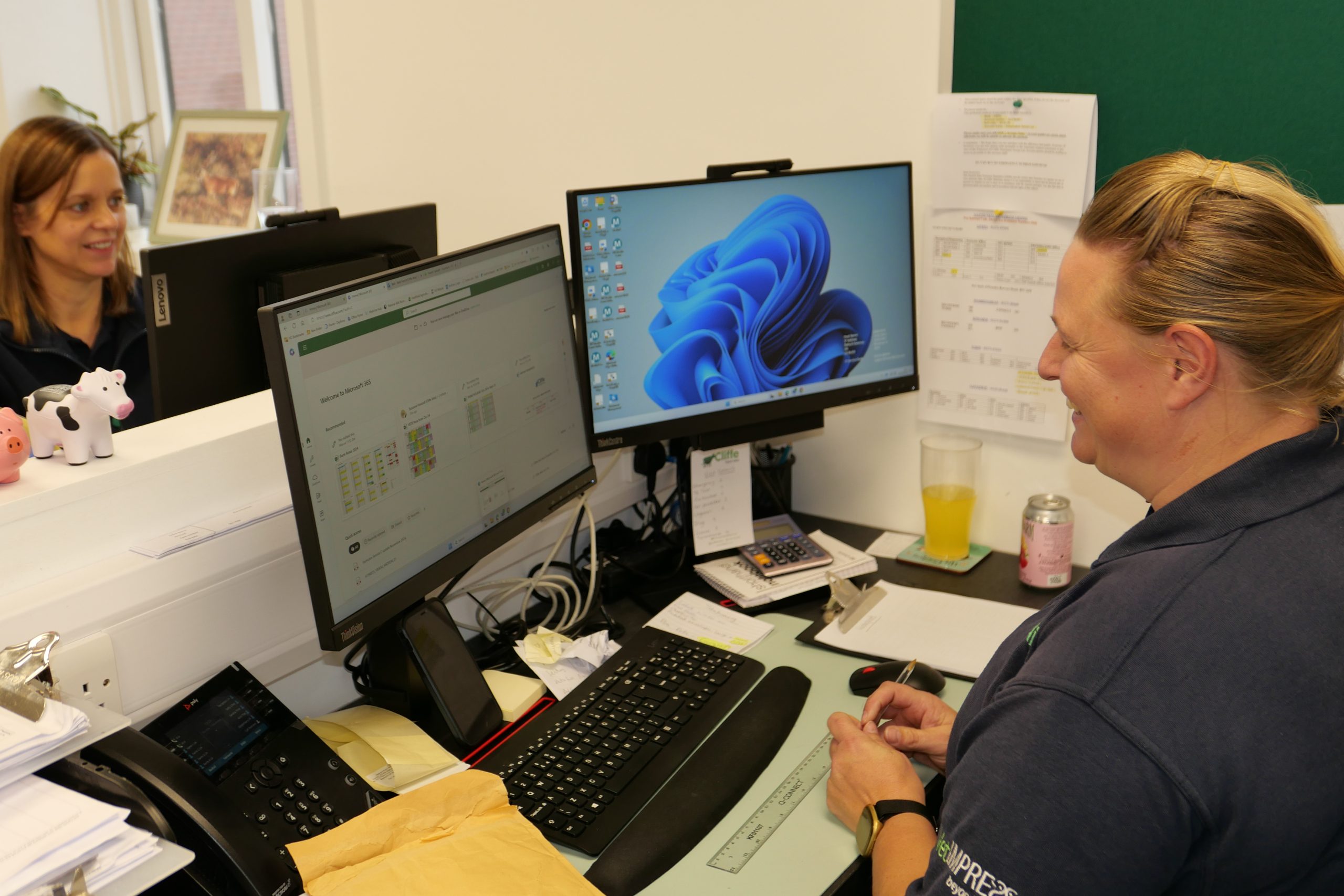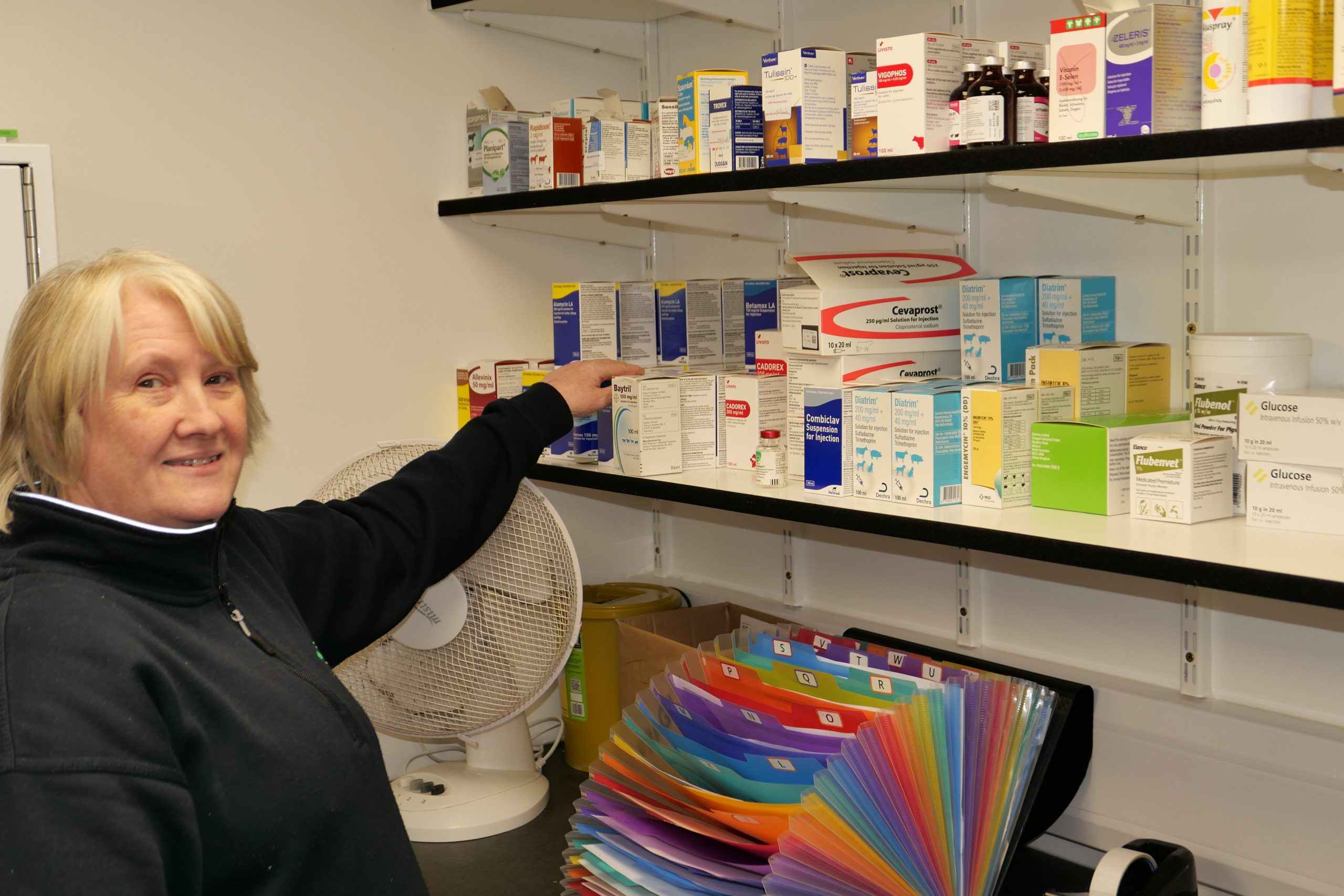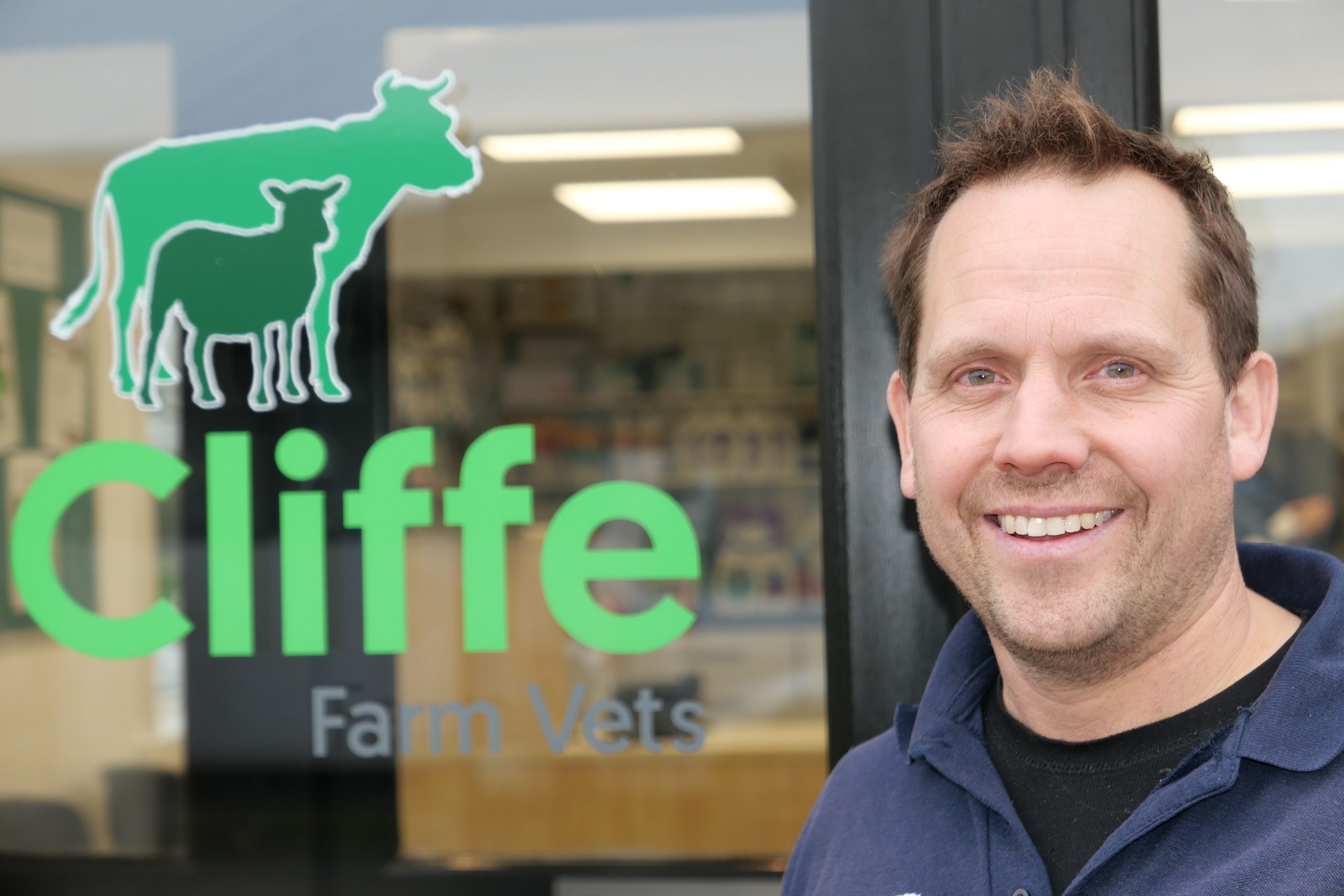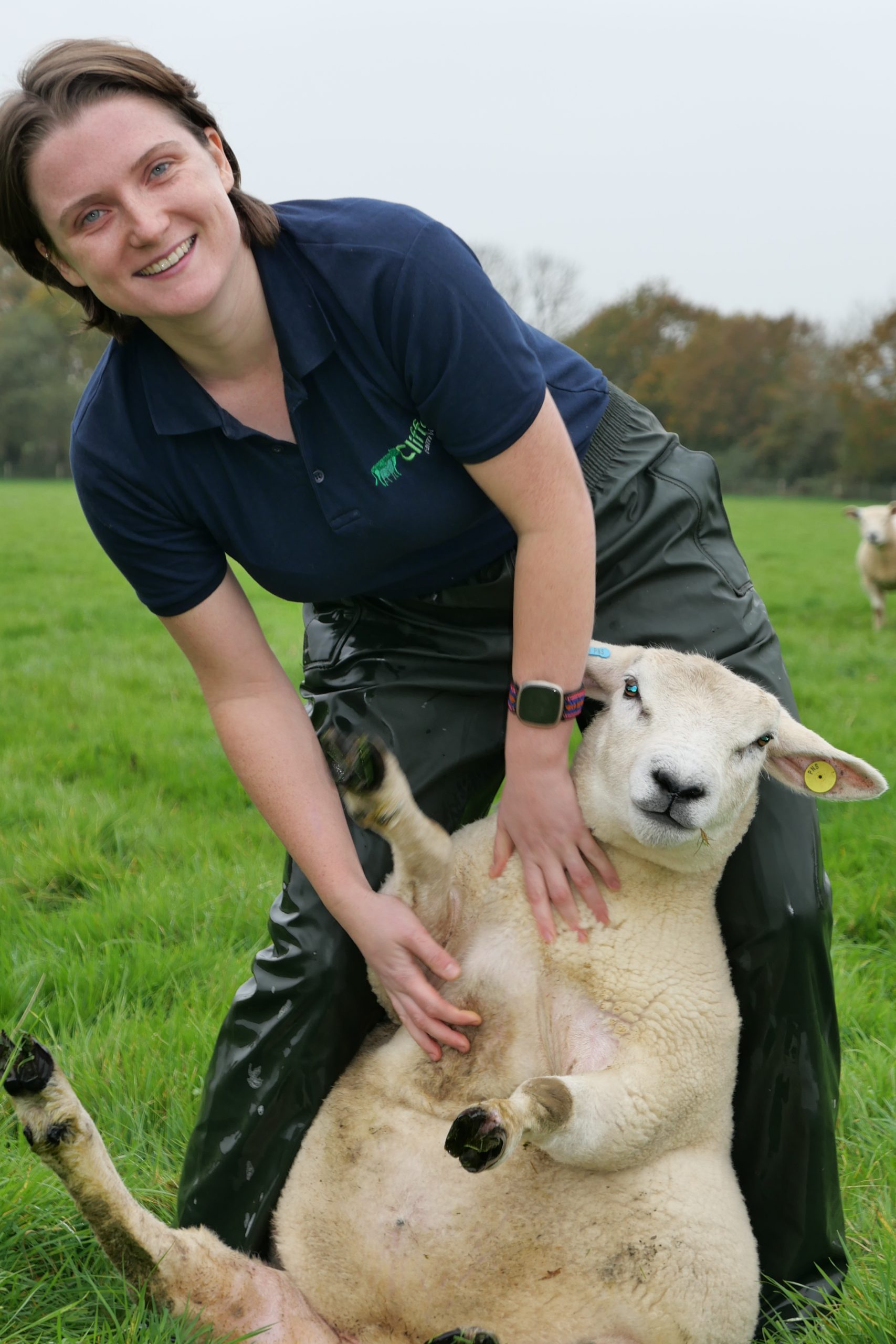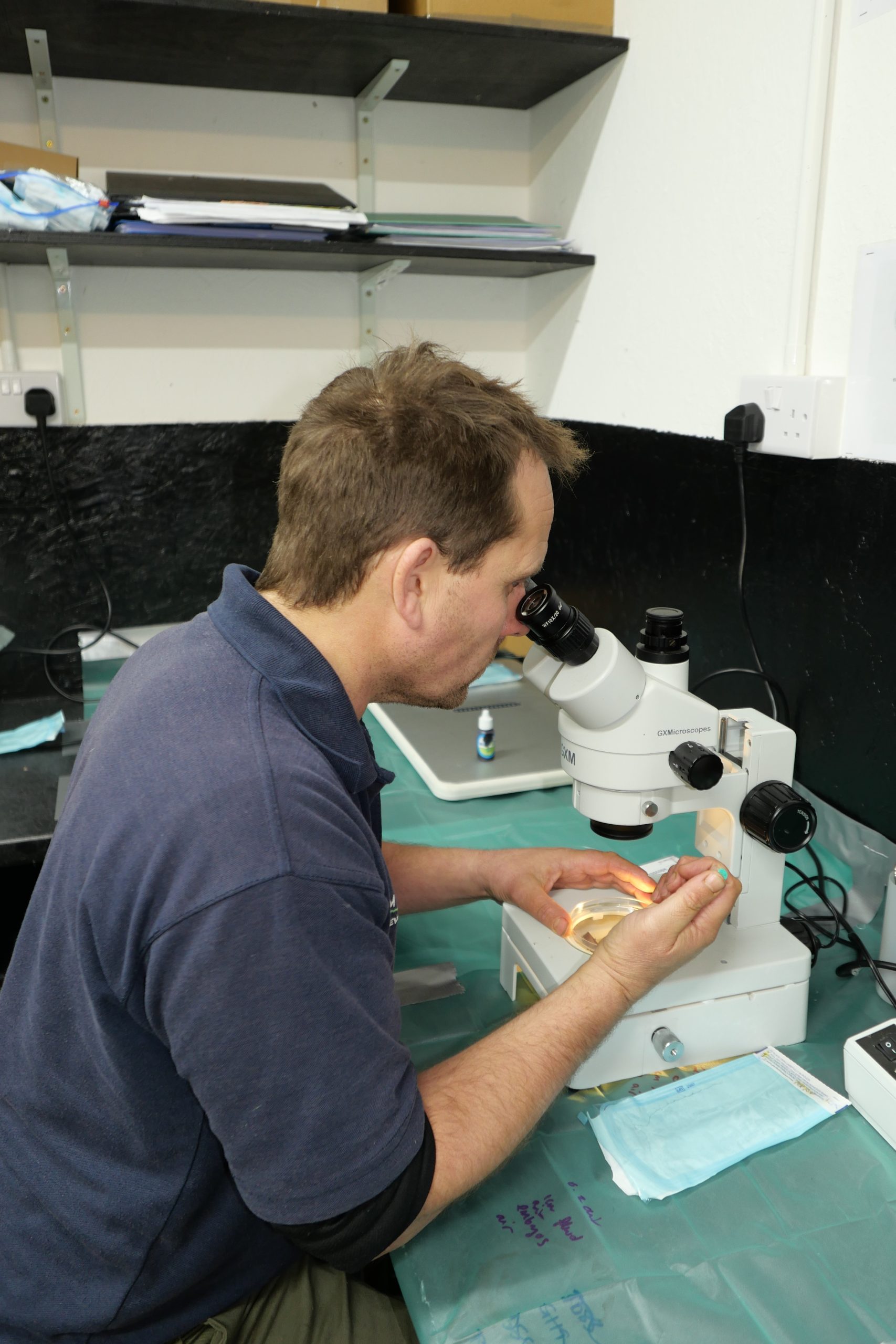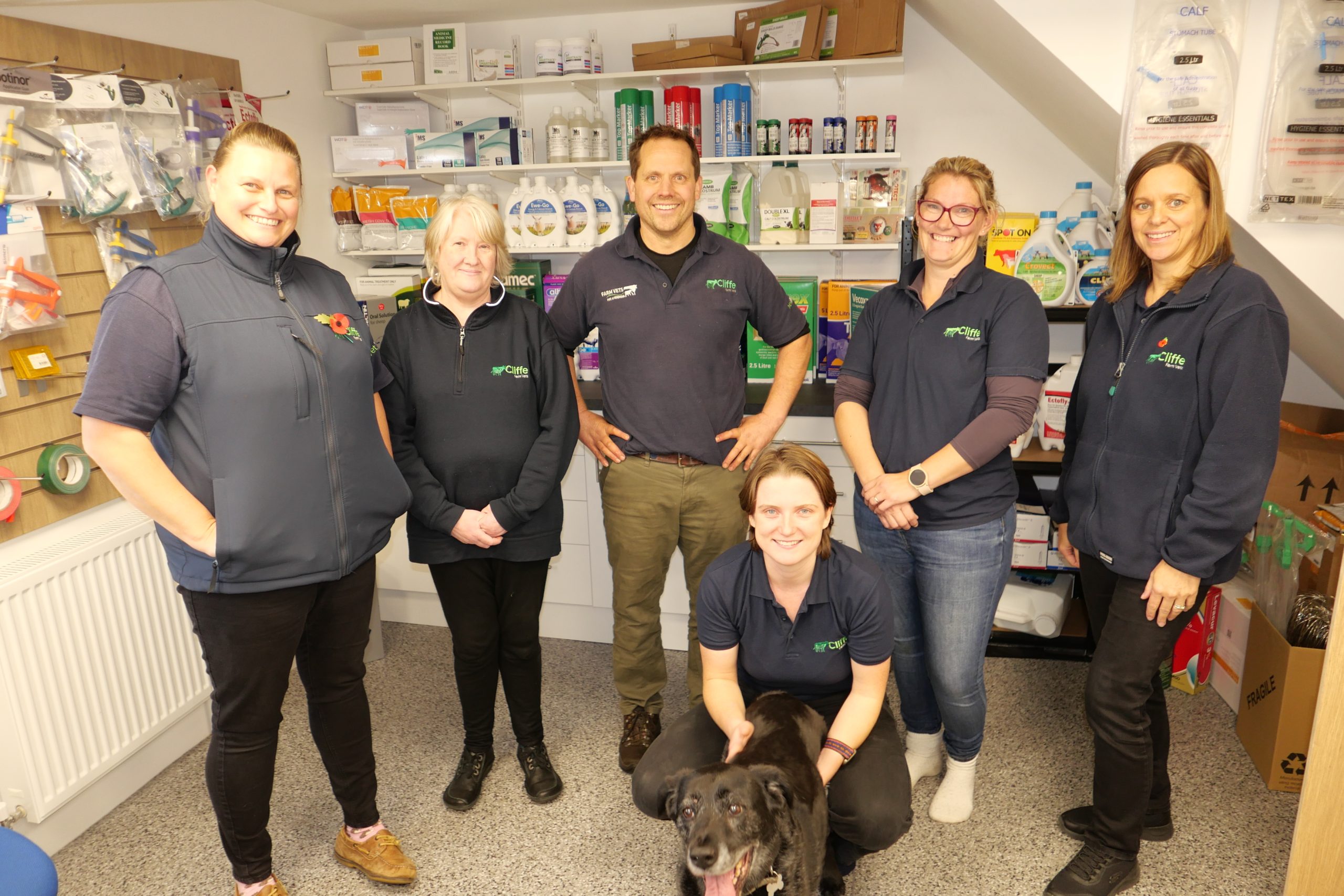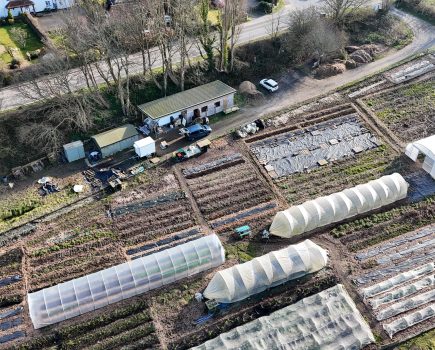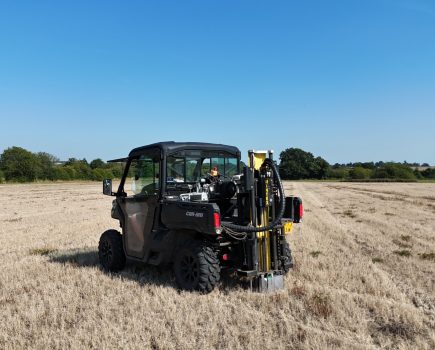Moving into smart new premises is just the latest step in an exciting journey that has seen Cliffe Farm Vets serving an increasingly wide customer base across East Sussex and beyond.
The dynamic practice has moved from Lewes town centre, where it had been sharing space with the small animal side of the multidisciplinary practice, to Harbens Farm, Mill Lane, Laughton.
With considerably more space, a retail area, laboratory facilities, ample parking and much easier access for the majority of clients, the new base has proved an immediate hit with the growing practice and the farmers it serves.
It marks another milestone for the practice which clinical director Nick Pile joined as a vet in 2009, working out of the Lewes town centre premises.
In 2017, he bought into the practice, working alongside long-standing and much-respected farm vet Bill Pepper, then the senior partner.
A year later, Bill, then 60, relinquished his partnership status but continued – and continues – to work for the practice. “Bill has been working as a vet for some 35 years and has a huge amount of experience,” said Nick. “He remains a vital part of Cliffe Farm Vets and provides valuable guidance to the whole team.”
At that point many vets were still mixed, and in Lewes the agricultural vets shared a relatively small space with the small animal specialists and occasionally found themselves in reception trying to reassure the owner of an injured cat or sick bunny.
Nick’s vision for the practice he now headed up was to grow the business to a scale where it could employ 100% farm vets but also operate a manageable out-of-hours rota.
That meant developing a bigger client base, and while the practice was enjoying good organic growth, the big opportunity came when two vets in the Hailsham and Battle area both decided to give up their farm work. Cliffe Farm Vets bought both client lists and Nick was able to turn his dream into a reality.
“Farmers have high expectations of their vet, and they have a right to expect the person treating their animals to have a high level of expertise in that area. That’s clearly easier to achieve if the vet is focused on farm animals 100% of the time,” said Nick. “It’s also easier for us to upskill younger vets if they are only treating livestock.”
The business has continued to grow since reaching what Nick described as “a critical mass”, with Cliffe Farm Vets playing an increasingly vital part in helping farms build sustainable and profitable businesses around healthy stock and focusing on preventative rather than reactive medicine.
Nick has also developed a thriving sheep genetics service as part of the practice, with embryo transfer and artificial insemination (AI) in demand from breeders across a wide area.
With three TB testers in the team, Nick has also played a leading role in the five-year Vaccinating East Sussex Badgers (VESBA) project which is using DEFRA funding to assess the viability of farmer-delivered badger vaccination in the fight to stamp out the disease.
With farmer training, a new youngstock health programme and a flock health club also on offer, Cliffe Farm Vets has established itself as a valued partner with farmers across an area that now stretches from Littlehampton to Fairlight, up to Sevenoaks and across to Gatwick.
It’s a partnership that is firmly based on helping farmers keep their stock healthy and productive. “The message we try to get across the whole time is that a little bit of spending in the right areas is not a cost but an investment,” Nick explained.
He also pointed out that statistics showed that on more productive farms, between 80% and 90% of the spend on suckler herds was devoted to preventative measures. “Farms that invest in areas such as health planning, fertility testing and nutrition planning end up with a better bottom line. It’s as simple as that,” he commented.
Health planning is an area the vets urge more farmers to take advantage of, with government funding on offer for the animal health and welfare pathway. “There is money available to help livestock farmers make their stock healthier and their business more productive and they really ought to take advantage of it,” he stressed.
“We can advise on the process, help with the application and carry out the process, making it stress-free for the farmer.”
Cliffe Farm Vets also benefits from impressive economies of scale when it comes to supplying medicines and other items, thanks to another important step in its evolution.
In 2021 it became part of IVC Evidensia, a Bristol-based national group that boasts 380 farm vets in 52 farm practices across the country.
Nick admits to having been wary of the move at first, since he valued Cliffe Farm Vets’ independence, close relationship with local famers and its ability to respond quickly to changing demand or opportunities.
“I needn’t have worried, though,” he commented. “In the event we have lost none of our independence or ability to react to local needs but have benefited enormously from the group’s buying power and bigger knowledge base.”
Nick is one of a dozen vets who sit on IVC Evidensia’s farm animal clinical board, which allows him to help shape and influence the way the business as a whole operates, and in the meantime he has all the freedom he needs to drive Cliffe Farm Vets forward, supported by long-serving colleagues such as Nanja Verkuijl, who has been with the practice since 2008, a year before he joined, and Claire Thorpe, who has been with the team since 2011.
“We have stayed true to our roots and we are still seen very much as the local vet,” said Nick, adding: “We are continuing to grow and on average pick up two new farmer clients every month, so clearly we are delivering what people are looking for. As our strapline points out, we blend a progressive approach with traditional values.”
The whole team at Harbens Farm consists of eight farm vets, a four-strong office team and the three TB testers, all of whom have active farming backgrounds. Two of the admin team are also farmers and Nick himself keeps a flock of Texels on the farm. “I’m very much a full-time vet and part-time sheep farmer,” he admitted.
Moving to the farm site, which is also home to Cliffe’s equine veterinary practice, made complete sense as the latest stage in the growth of the business. “While the farm vet side was operating independently, it was still based in Lewes alongside the small animal practice,” Nick pointed out. “The equine practice had plenty of space out here and with a bit of moving around and conversion work we were able to join forces on the same site.”
The new premises include an on-site clinical space where minor procedures such as ram vasectomies and post mortem examinations can be carried out, along with a laboratory that is used to check the viability of embryos flushed as part of the enhanced fertility service now offered by Cliffe Farm Vets.
The building also includes a pharmacy and retail area stocking products from well-known brands including Boehringer Ingelheim, manufacturer of Bovela vaccine, MSD, which supplies calf scour vaccines, and Ceva, known for sheep abortion vaccines.
Cliffe Farm Vets also supplies Vetoquinol’s VetIMPRESS cloud-based, on-farm management system that uses data from the British Cattle Movement Service and supports medicine monitoring and auditing.
Vetoquinol says VetIMPRESS “connects fragmented animal data to deliver insights at animal, farm and practice level via cloud-based apps”, explaining: “These insights can be used to improve herd health [and] increase performance and profitability of farms.”
Nick is confident that, as part of IVC Evidensia, the practice can “compete with anyone on price for most of the products we stock”, while the new building offers farmers the chance to browse products in a way they couldn’t in the smaller town centre shared premises. “We have a broad range of vaccines, antibiotics, wormers, fly control products and the like, alongside plenty of parking space at our new 40-acre home,” he pointed out.
Cliffe Farm Vets’ advanced sheep breeding service began in 2017 and has become well respected by farmers looking to maximise the potential of their pedigree flocks. Embryo transfer (ET) is a specialist skill rarely found outside Wales and the West Country and Nick thinks his is the only practice offering it in the South East.
“After AI, we can flush as many as 20 embryos from the ewe, check them in the laboratory and then implant the healthy ones into surrogate ewes to carry to term,” Nick explained.
The specialist, mobile service is one that Nick offers across a wider geographic area than the normal veterinary work, often travelling to the Midlands and East Anglia to support sheep breeders with high value pedigree breeds such as Dutch Spotted, Swiss Valais Blacknose and Charollais as well as Suffolk, Beltex, Southdowns and Texels.
“Bearing in mind you could end up with as many as 20 pairs of lambs from one AI session and the follow up implantations, it can be an excellent investment,” he commented. “It’s a growing area of the business and one we are happy to travel for.”
Nick keeps his skills in this area sharply focused by working with one of the country’s leading embryo transfer companies for four weeks a year, and to ensure that Cliffe Farm Vets can continue to meet the demand for AI services, he has trained one of his team, Lily Griffiths, to carry out the procedure.
The practice also offers AI to beef farmers to help synchronise calving and allow the farmer to introduce superior genetics, as well as carrying out more routine “bread and butter” preventative work with cattle and sheep.
While focusing on the farm vet practice, Nick is also a director of the whole business, which runs the equine operation at Harbens Farm and small animal practices in Lewes, Ringmer and Woodingdean.
Nanja and Claire run a well-supported flock health club which brings sheep farmers together for meetings, talks and other events, while a busy WhatsApp group allows farmers to keep in touch and seek informal advice from each other.
The practice has also set up a youngstock health programme for dairy farmers, a free service headed up by another member of the team, Isabel Field, who monitors autumn calving herds between August and October and gives advice on colostrum protocols, as well as carrying out calf health audits. Isabel is also Cliffe Farm Vets’ mastitis adviser, offering the ‘gold standard’ DairyCo mastitis plan.
As a leading player in the VESBA project, Cliffe Farm Vets has seen some 720 badgers across 280 square miles of the high-risk bovine TB area in East Sussex vaccinated this season through the DEFRA-funded project.
“DEFRA will now be studying the data closely to see what impact the vaccination programme has had on the levels of TB in cattle in this area, using some sophisticated mapping systems that can highlight whether it has been transmitted by wildlife or cattle,” said Nick. “We should know by January if it’s made a difference.”
VESBA has been licensed by Natural England to train farmers in badger vaccination, and with the project set to last for five years Nick feels Cliffe Farm Vets could become a vaccination training hub nationally. He offered a note of caution, though, stressing: “We also need to deal with endemic TB in herds.”
Training, like prevention, is part of the practice’s DNA as Cliffe Farm Vets seeks to become the trusted partner of farmers across the South East, and Nick and his team offer training in areas including foot trimming, AI, managing medicines and faecal worm egg counts.
“We see our role very much as team members, working with our farmers to help them get the most from their investment in their livestock,” he concluded.
- Vet Isabel Field and vet tech Sam Nicholls get into the festive spirit during their youngstock visit
- Kate French (right) heads up the office team and keeps the vets in check
- Tracy Lawrence has moved to Laughton with the Farm team and is running the dispensary
- Nick Pile
- Lilly Griffiths , who assists with the Sheep AI and ET work
- Nick Pile counting and grading embryos from a successful flush
For more like this, sign up for the FREE South East Farmer e-newsletter here and receive all the latest farming news, reviews and insight straight to your inbox.


